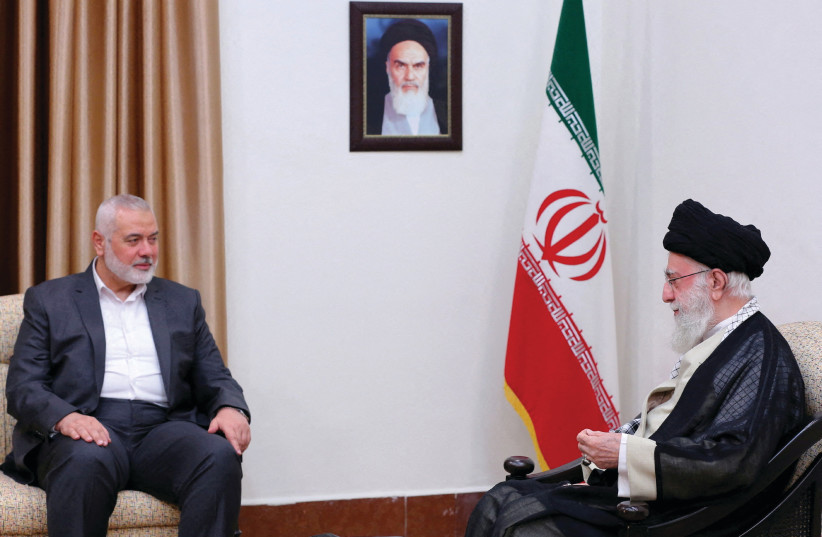Britain said it had adopted a new sanctions regime against Iran on Thursday as it announced measures against seven individuals, including the head of Tehran's Quds Force, for threatening or planning the destabilization of Israel.
The British government said the new regime, which it said gave it greater powers to act against Iran and its decision-makers, had been brought in response to "unprecedented threats" from Tehran to peace in the Middle East and to plots to kill individuals in Britain.
"The behavior of the Iranian regime poses an unacceptable threat to the UK and our partners," foreign minister David Cameron said in a statement.
"It continues to threaten people on UK soil and uses its influence to destabilize the Middle East through its support to armed groups, including Hamas and Palestinian Islamic Jihad (PIJ)."
Those subject to travel bans and asset freezes under the new sanctions included Esmail Qaani, the head of the Quds Force, which is the arm of Iran's powerful Revolutionary Guards Corps (IRGC) that controls its allied militia from Lebanon to Iraq and Yemen to Syria.

British assess Iran does not want a direct war
Also sanctioned were Mohammed Saeed Izadi, the head of IRGC-QF Palestine branch, and three other members from that branch: Ali Marshad Shirazi, Majid Zaree, Mostafa Majid Khani.
The entire branch itself is subject to asset freezes, the government said, while Hamas and PIJ representatives to Iran, Khaled Qaddoumi and Nasser Abu Sharif, respectively, also face travel bans and asset freezes.
London has accused Iran of supporting Houthi militant attacks on shipping in the Red Sea but the British Chief of the Defense Staff Tony Radakin said Britain did not think Tehran wanted a war in the Middle East.
"We assess Iran doesn’t want a direct war ... But Iran is comfortable with the way events have unfolded, the dilemmas for Israel, the threat posed by Lebanon’s Hezbollah and Yemen’s Houthis, militia groups exploiting this crisis to challenge America’s role in the region," Radakin said in a speech on Wednesday.
